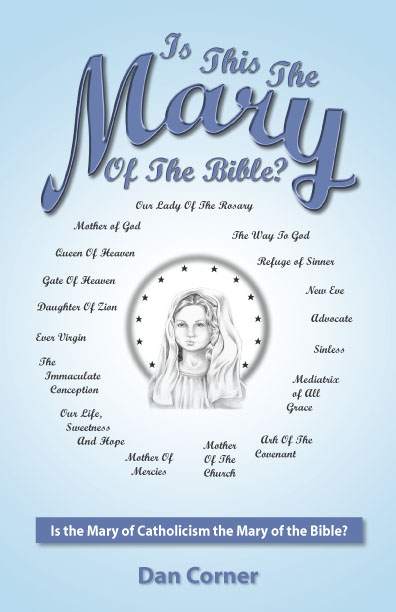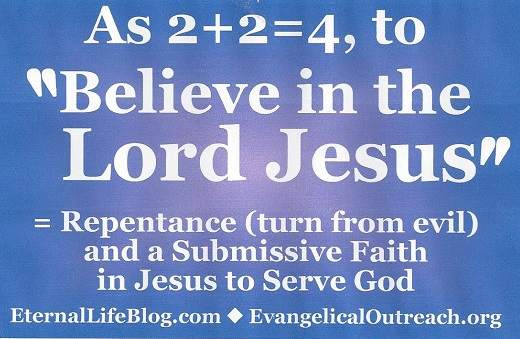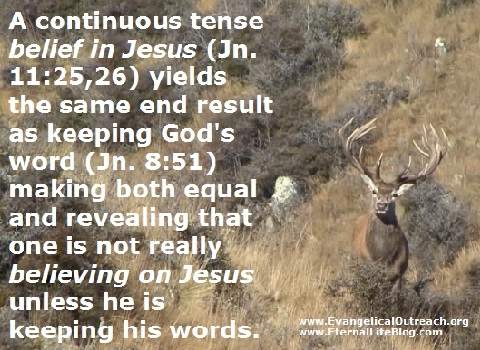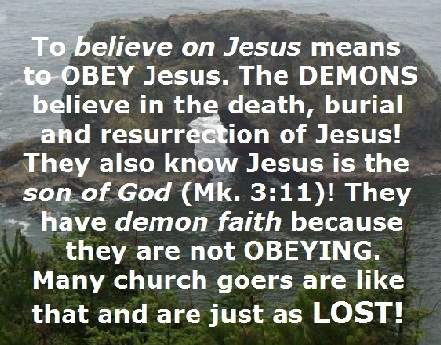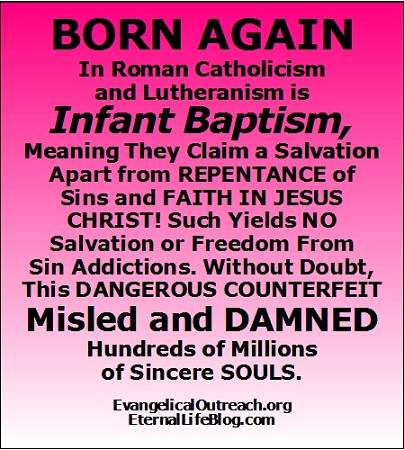New Testament Giving – 2 Corinthians 9
This study is a continuation of the respective study of 2 Corinthians 8. The wealth of information given in 2 Corinthians 8 concerning giving, continues in 2 Corinthians 9 too.
2. Corinthians 9:1-5: the gift as a blessing and not as covetousness.
2 Corinthians 9:1-5 “Now concerning the ministering to the saints, it is superfluous for me to write to you; for I know your willingness, about which I boast of you to the Macedonians, that Achaia was ready a year ago; and your zeal has stirred up the majority. Yet I have sent the brethren, lest our boasting of you should be in vain in this respect, that, as I said, you may be ready; lest if some Macedonians come with me and find you unprepared, we (not to mention you!) should be ashamed of this confident boasting. Therefore I thought it necessary to exhort the brethren to go to you ahead of time, and prepare your generous gift beforehand, which you had previously promised, that it may be ready as a matter of generosity and not as a grudging obligation.”
The words “generous gift” and “generosity” in the last sentence of the above passage is the Greek word “eulogia” that means “blessing”. Also, what is translated as “grudging obligation” is the Greek word “pleonexia” that means “covetousness”.
Paul calls the gift “blessing”. It is not a tithe, it is not a mandatory giving either. It is a blessing! This is how we should also think of our gifts to the poor saints: as blessings! Paul was excited that the Corinthians wanted so much to give, but he was not pressing them about it. The gift was to “be ready as a blessing [Greek: eulogia] and not as covetousness [Greek: pleonexia]”. Here is what a commentator says on this (Barnes: Albert Barnes’ Notes on the Bible):
“The word used here (pleonexia) means usually covetousness, greediness of gain, which leads a person to defraud others. The idea here is, that Paul would have them give this as an act of bounty, or liberality on their part, and not as an act of covetousness on his part, not as extorted by him from them.” (emphasis added)
Paul wanted the gift of the Corinthians to be a blessing and not something that was taken from them, out of covetousness. It is a pity that there are people today that do what Paul would not do: use manipulation and enticement to extort gifts from people. People today often don’t care about the means as long as their aim is obtained. It should not be like this. This is in no way what God wants. What He wants is that your gift is a blessing, an act of liberality, something that you desire and you can give and is in no way something that is taken from you through guilt, enticement or any other of the techniques that are many times used today. Back to Paul, he would not be greedy concerning the gift. He wanted the Corinthians to give but he was very careful, very gentle. He was careful in 2 Corinthians 8 and is careful here too. As Barnes correctly states, he wanted the gift to be an act of bounty, of liberality, on their part and not an act of greed from his part. How liberating is the Word of God and how much distortion exists today in the way many demand money.
2 Corinthians 9:6-7: The law of sowing and reaping and (again) how to give.
2 Corinthians 9:6-7 “But this I say: He who sows sparingly will also reap sparingly, and he who sows bountifully will also reap bountifully. So let each one give as he purposes in his heart, not grudgingly or of necessity; for God loves a cheerful giver.”
If we have heard something, and this many times, from 2 Corinthians 9 it is verse 6 (“He who sows sparingly will also reap sparingly, and he who sows bountifully will also reap bountifully”). But Paul does not use verse 6 to manipulate believers into giving. He already spoke for almost one and a half chapters on how to give, before he arrives at this verse. What Paul does in 2 Corinthians 9:6 is to state the simple truth: if you sow sparingly you will reap sparingly and if you sow bountifully you will also reap bountifully. According to what you sow you will also reap. There will be a return for your gift and this return is in accordance to how much you give. HOWEVER the giving has to be voluntary, from the heart. No gift is welcomed if it is given grudgingly, with sorrow, without being happy with it, or if it is given out of compulsion or “of necessity” (2 Corinthians 9:7). “Of necessity” means because you have to. You don’t want to give but you are somehow forced to give. And this is what happens many times with tithing. Preachers come up, start reciting Malachi and Old Testament passages on the tithe and end up saying or implying that if you don’t give the tithe to the church you are cursed by God (or close to be cursed) and you cheat Him. Then you go ahead and put money in the money basket in response to this. In reality you didn’t give voluntary but you gave because you don’t want to cheat God and be under a curse – as the preacher told you. You would prefer to feed the poor, buy some sacks of rice for those poor kids in Haiti and support that evangelist that spreads the gospel in India. But now you were forced by the preacher to give for something else that you didn’t really want to give to. Thus you gave out of guilt, out of condemnation. Now if this is not giving with sadness and out of necessity I wonder what this is. Dear brother you do not have to succumb to such calls! What you were told is simply not the voice of the Word of God but the voice of tradition and religion that distorts the Word of God. You must not give because somebody forces you to give but because you really want to give from the heart. If you give out of guilt, if you have sorrow about it, the gift will not be welcomed by God. Also, to those that use condemnation and guilt as techniques to force God’s people to give for their purposes, I would like to point out: Paul said that he didn’t want the gifts to be as taken, extorted, from them. God does not really want such gifts, because people didn’t give them voluntary but they were in fact taken from them, stolen if you want! Not by force of power but by the force of words!
Having said the above, let’s go and have a look at 1 John 3:16-18:
“By this we know love, because He laid down His life for us. And we also ought to lay down our lives for the brethren. But whoever has this world’s goods, and sees his brother in need, and shuts up his heart from him, how does the love of God abide in him? My little children, let us not love in word or in tongue, but in deed and in truth.”
God’s Word says in 2 Corinthians 9:7 not to give grudgingly or out of necessity, because somebody tells you to give. Instead we must give out of the heart and be generous in it. God loves the one that gives gladly. He does not welcome the gift that is given with sadness. On equal ground it is a sin to have any love of money. As Paul said “the love of money is the root of all evil” (I Timothy 6:10). He also said that the genuineness of our love is tested by how much we care for the others (2 Corinthians 8:8). And what John describes here is a real situation: you have two brothers. One has this world’s goods. He has extra empty beds at home. He has plenty of money in the bank. He has plenty of food in the cellar. Now this man meets a brother that is in need. A need that the first one can satisfy. What should the first brother do? Should he pray for his bother in need? Yes he should do this too, but he should not stay there! He should give to him and help him. He should not shut his heart up as John says and just mutter a prayer or say a “God bless you brother” and walk away. The test of caring for others proves the sincerity of our love and whether the love of God is in us or not. And this is really a very serious matter.
Now, going back to the tithing system, there is the other distortion created by it: people are forced to give their tithe to a local church basket and then when they see a brother in need, they think: “I have already given my tithe to the church”. Thus we give out of necessity to purposes that give little help to the poor (most of what is given to a local church basket does not really end up helping the poor – this is sad but it is real and a look at the budget of an average church, especially in the Western world, is enough to verify it) and then when the poor come up we do not want or we cannot help them. This is a real, sad and usual situation.
Returning to 2 Corinthians 9:6, people very frequently use it to tell others that if you give a lot God will return the gift to you multiple times. In fact, in addition to 2 Corinthians 9:6, they again use Malachi for this:
Malachi 3:10-12 “Bring all the tithes into the storehouse, That there may be food in My house, And try Me now in this," Says the Lord of hosts, "If I will not open for you the windows of heaven And pour out for you such blessing That there will not be room enough to receive it. "And I will rebuke the devourer for your sakes, So that he will not destroy the fruit of your ground, Nor shall the vine fail to bear fruit for you in the field," Says the Lord of hosts; And all nations will call you blessed, For you will be a delightful land," Says the Lord of hosts.”
Some preachers and ministers wrongfully use the above passages enticing their audience to give with the promise of many financial blessings. Thus people give. But why? What is their motive? None of the motives of 2 Corinthians or the remaining word of God. It is not a act of generosity out of the heart but rather either an act of guilt (they give so that they do not … cheat God, as the preacher told them) or an act of greed (they give so that they get back much more). God is presented in this way as a money machine, as a bank. “Give your tithe and you will get it back multiple times”. Having money as a motive is wrong! Though God does return bountifully to those that give bountifully it would be out of order and character for Paul to use 2 Corinthians 9:6 to entice the Corinthians to give under promises of big and more harvests! What I believe Paul wanted to do was to state the facts. There is indeed a harvest to the givers. There is indeed a reward. I don’t know what it is, but why should it necessarily be a financial harvest or only a financial harvest or a harvest that refers only to the present earthly life ? The main thing is that there is a harvest! And the one that sows sparingly harvests sparingly and the one that sows abundantly also harvests abundantly. This is a fact! The Word does not speak of financial harvests, it speaks of harvests and there can be many different kinds of them, including financial ones. Do you want to call them “blessings”, here and in heaven? Call them blessings. I like more the word harvest! You want to harvest a lot? Sow also a lot!
2 Corinthians 9:8-15: “All sufficiency in all things”, guaranteed by God.
2 Corinthians 9:8-9 “And God is able to make all grace abound toward you, that you, always having all sufficiency in all things, may have an abundance for every good work. As it is written: "He has dispersed abroad, he has given to the poor; his righteousness endures forever."
God through Paul leaves no shadow of doubt: nobody is going to be made needy by giving liberally. As he makes clear, God assures they will have all sufficiency in all things and this always! They will have an abundance for every good work! God Himself guarantees this! Then Paul quotes Psalms 122:9: “"He has dispersed abroad, he has given to the poor; his righteousness endures forever”. Now this passage does not refer to God. It does not say: “God has dispersed abroad, God has given to the poor; God’s righteousness endures forever”. Instead this Psalm refers to the man that fears the Lord. Let’s read it in its entirety because it contains more promises:
Psalms 112:1-10 “Praise the Lord! Blessed is the man who fears the Lord, Who delights greatly in His commandments. His descendants will be mighty on earth; The generation of the upright will be blessed. Wealth and riches will be in his house, And his righteousness endures forever. Unto the upright there arises light in the darkness; He is gracious, and full of compassion, and righteous. A good man deals graciously and lends; He will guide his affairs with discretion. Surely he will never be shaken; The righteous will be in everlasting remembrance. He will not be afraid of evil tidings; His heart is steadfast, trusting in the Lord. His heart is established; He will not be afraid, Until he sees his desire upon his enemies. He has dispersed abroad, he has given to the poor; his righteousness endures forever; His horn will be exalted with honor. The wicked will see it and be grieved; He will gnash his teeth and melt away; The desire of the wicked shall perish.”
We have extensively written in another study about the fear of the Lord. The man that fears the Lord will be blessed! And one of the things that the man that fears the Lord does, is to give to the poor. He is liberal in his giving. He has dispersed abroad. He is not stingy but generous, because God is his abundance. And as 2 Corinthians 9:8-9 told us, God Himself guarantees that when you give liberally to the poor you are not going to run out of seed. And it continues:
2 Corinthians 9:9-15 “Now may He who supplies seed to the sower, and bread for food, supply and multiply the seed you have sown and increase the fruits of your righteousness, while you are enriched in everything for all liberality, which causes thanksgiving through us to God. For the administration of this service not only supplies the needs of the saints, but also is abounding through many thanksgivings to God, while, through the proof of this ministry, they glorify God for the obedience of your confession to the gospel of Christ, and for your liberal sharing with them and all men, and by their prayer for you, who long for you because of the exceeding grace of God in you. Thanks be to God for His indescribable gift!”
God who supplies the seed to the sower and the bread for food will supply and multiply the seed we have sown so that we can sow even more. And Paul explains that this gift, the gift to the poor, will abound in many thanksgivings to God. In the Corinthians instance the recipients would glorify God for the liberal sharing, the generosity, of their Corinthian brothers and sister.
2 Corinthians 9: Conclusion.
In this article we considered what 2 Corinthians 9 tells us about giving. What we saw here has to be added to what we saw in the respective article from 2 Corinthians 8. Here are the additional points we saw in this study:
i) Paul wanted the gift to be an act of generosity from the Corinthians’ side not an act of covetousness or greed from his side, where he would somehow extort the gift from them through guilt or any other manipulative way (2 Corinthians 9:1-5). In contrast to many today, Paul would not use guilt to take the gift. The gift is not the only thing that is important. It is equally important how the gift is taken. Using guilt to motivate people to give is wrong. The only valid motivator I see is the desire from the heart to give.
ii) Then we saw that the gift should not be given grudgingly or out of necessity (2 Corinthians 9:7). Instead it should be given joyfully. Again we see the same as in i) above. The gift itself is not enough. It is equally important how the gift is given and what is the motivator that made somebody to give.
iii) Whoever sows sparingly will also harvest sparingly and whoever sows bountifully will also reap bountifully (2 Corinthians 9:6). If you want a law, this is a law, a principle that will never be violated. Giving is like sowing seed. You sow much, you harvest much. It does not necessarily mean a financial harvest or only a financial harvest. It means harvest, and this harvest can be various things, including financial “harvests”. Paul does not state this to entice people so that they give out of greed. There is nothing good in greed and this can never be a good motivator for anything. He says this to state a fact, and the law of sowing and reaping is a fact.
iv) God Himself gives assurance that you will in no way get poor by giving liberally (2 Corinthians 9:8-10). God guarantees this Himself. As the Word says: “God is able to make all grace abound toward you, that you, always having all sufficiency in all things, may have an abundance for every good work” (2 Corinthians 9:8). ALL grace, ALL sufficiency in ALL things, ALWAYS, so that you may have abundance in EVERY good works. It cannot be made clearer. There is a guarantor behind this promise and this is GOD Himself.
Tassos Kioulachoglou
Please check out Anastasios's book "The Warnings of the New Testament". Purchase at Kindle and Amazon or download for FREE at: http://www.jba.gr/Articles/pdf/the-warnings-of-the-New-Testament.pdf





